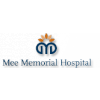JOB SUMMARY : Functions independently in performing the nursing process through assessment, planning, intervention and evaluation of safe therapeutic care for patient’s overt and covert needs and / or complications of treatment during his / her assigned shift.
He / she will individualize patient care based upon the age appropriate and developmental needs. Should be able to demonstrate the knowledge and skills necessary to provide care appropriate to the age of the patients on his / her unit.
Provides ancillary members of the healthcare team.
PERFORMANCE DIMENSIONS AND TASKS
Essential Function
1 Collects and documents data about patients through the following methods :
a. Interviews the patient or other significant source and completes appropriate history / assessment information on patient’s clinical record within two hours of admission
b. Legibly documents symptoms that indicate risk on clinical record in a legible manner
c. Incorporates nursing diagnostic data into written assessment.
d. Documents information from family, other nurses and physicians in the written assessment.
2 Documents patient problems requiring nursing interaction.
a. Documents identified problems using nursing diagnosis including patient teaching needs and discharge planning on patient’s clinical record.
3 Develops and contributes to a plan of nursing action based on existing problems and obtainable patient response.
a. Develops and contributes to the nursing care plan using nursing process.
b. Incorporates medical plan of care when developing nursing care plan.
4 Utilizes resources (patient, family, nurses, physicians, and written material) to formulate the written plan of care
a. Uses resources when formulating a written plan of car and involves patient and family in care plan formation.
5 Communicates the plan of care by using methods that include action plans, goals and time frames.
a. Updates Kardex and care plans using Nursing diagnosis and outcome criteria.
b. Aware of time frames when carrying out medical / nursing plan of care
c. Uses shift report to communicate changes and response to care.
6 Implements safe therapeutic care for patients.
a. Documents and sets priorities for care of patients based on acuity, need, or patient preference.
b. Safely performs and documents nursing interventions required by the patient assignment consistent with scientific principles and hospital policy
c. Carries out and documents the medical and nursing care plans for said patients and coordinates patient care activities with
nurses and physicians and other healthcare team members
d. In response to information / data indicative of acute risk and documents the action.
e. Seeks out appropriate resources.
f. Explains tests, procedures, and disease process to patient / family. Follows through with teaching plan about information by instructing patient / family and skills essential to understanding and coping with illness and for the promotion of optimal health and as it applies to the discharge process.
g. Assesses patient / family level of understanding and documents on clinical records.
h. Participates effectively in Code procedures.
i. Ensures that patient is reassessed as status requires.
Essential Functions
7 Participates in the evaluation and review of patient care.
a. Evaluates the effectiveness of nursing interventions in relation to intended goal.
b. Participates in patient care conferences.
c. Documents patient response to care in Nurses notes
d. Revises patient care plans based on evaluation of effectiveness of interventions.
8 Participates in staff teaching and development
a. Provides both formal and informal teaching activities to promote staff education / knowledge.
b. Communicates identified learning needs of others to resources able to meet learner’s needs.
c. Assists in the development and implementation of educational programs and learning aids for the nursing unit, such as : i In-service
ii Learning aids
iii Patient care guidelines
iv Nursing or hospital committees
d. Assists in orientation of new staff by sharing knowledge, experiences and verbal encouragement and acting as preceptor.
e. Assists others in choosing nursing intervention, developing skills, and applying knowledge.
f. Assists in employee performance evaluation as needed.
9 Policies and procedures.
a. Is knowledgeable of, follows and directs others to follow hospital policies and procedures and nursing unit protocols.
b. Administers medications safely and accurately following existing department procedures.
c. Maintains principles and procedures of intravenous therapy.
d. Follows Infection Control policies / procedures, i.e., prescribed hand-washing and aseptic techniques.
e. Recognizes and communicates to proper authority ethical and legal issues relative to patient care. Completes notification forms according to protocol and notifies appropriate personnel.
Applies principles of prevention and safety for patients and staff.
f. Uses mechanical equipment correctly and appropriately as outlined in the Nursing Procedure Manual. Detects faulty equipment and notifies appropriate person for repairs.
g. Maintains cost containment efforts by prudent use of supplies and equipment; charging supplies and equipment appropriately.
10 Delegation and supervision.
a. Supervises delegated care based on abilities and limitation of heath care personnel and patient acuity. Makes adjustments in delegated assignments as needed.
b. Reports changing patient status that affects nursing unit staffing needs using appropriate supervisory communication structure.
c. Responds cooperatively to immediate staffing and / or patient care needs. Assists other staff when own assignment is complete.
11 Problem solving
a. Utilizes the steps of problem solving to resolve identified patient related problems.
b. Reports unit related problems using the supervisory communication structure.
c. Acts as a resource to other staff members in problem identification and resolution.
12 Maintains interpersonal relations / communications.
a. Listens to the ideas, opinions and feeling of others
b. Uses communication (interpersonal) strategies with individual patients and staff that result in : i Achievement of intended outcomes
ii Others expressed perception of acceptance / satisfaction
c. Gives feedback to other staff in regard to behavior that is detrimental to : i Achievement of patient care objectives
ii Achievement of nursing unit and organizational objectives. Suggests options for achieving change in behavior when needed.
Essential Functions
13 Gathers, disseminates and communicates pertinent information.
a. Completes clinical assignments in a timely fashion including maintenance of equipment and supplies necessary for provision of patient care through next shift.
i Medication stock
ii Medical / Surgical supplies
iii Maintains safe, therapeutic, physical environment.
b. Completes non-clinical assignments, tasks, and projects within a pre-established agreed upon time frame.
c. Prioritizes own workload relative to patient care
d. Attends and participates in staff meetings
e. Obtains information presented in staff meetings.
f. Participates in nursing unit goal setting.
g. Attends mandatory in-service programs.
h. Participates in committee work as requested.
14 Maintains professional responsibilities to enhance personal growth
a. Understands and functions within the scope of the California nurse Practice Act.
b. Keeps all licenses and certificates current.
c. Plans for personal change and growth based on evaluation and feedback.
d. Participates in setting measurable goals for performance
e. Acquires knowledge or experience to meet goals.
15 Performs other duties as assigned.
a. Performs other duties within capabilities as assigned by Manager.




